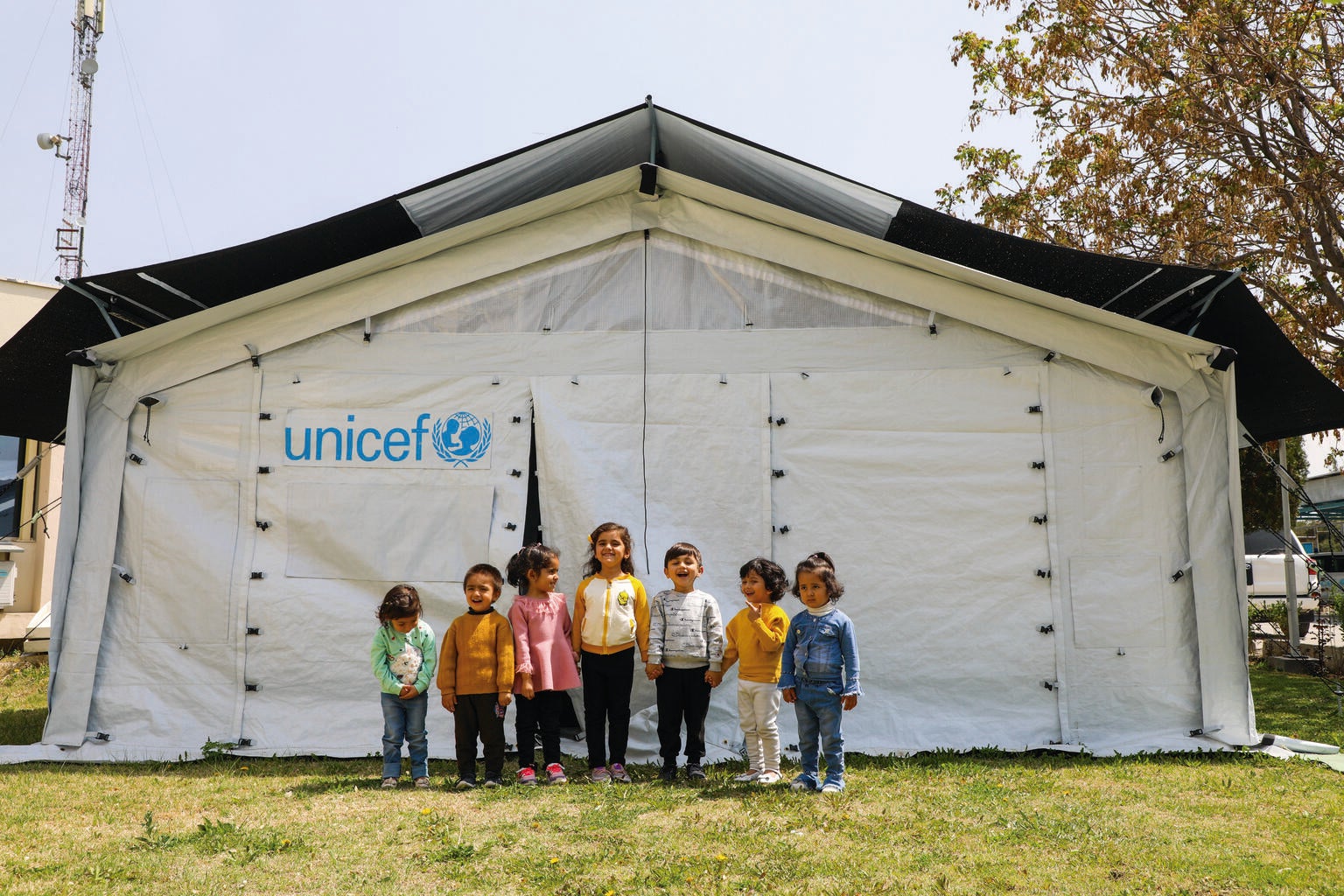Afghanistan is one of the most dangerous places to be a child.
Conflict, drought and COVID-19 have collided, making life incredibly difficult for children in Afghanistan.
Now, as the situation changes daily for families across the country, they face an uncertain future with hundreds of thousands of people displaced from their homes. But wherever there are children in need, UNICEF is there. Our teams are on the ground before, during and after emergencies. When others leave, UNICEF stays.
UNICEF has been in Afghanistan for 65 years. In that time, we’ve built trust with everyone we need to get the job done. UNICEF has 13 offices nationwide and a range of partners that support us in delivering life-saving supplies to the most disadvantaged. With your help, we've achieved some amazing things and will continue to do so. Here is a snapshot of what life is like for children in Afghanistan and how UNICEF is working to reach every child.
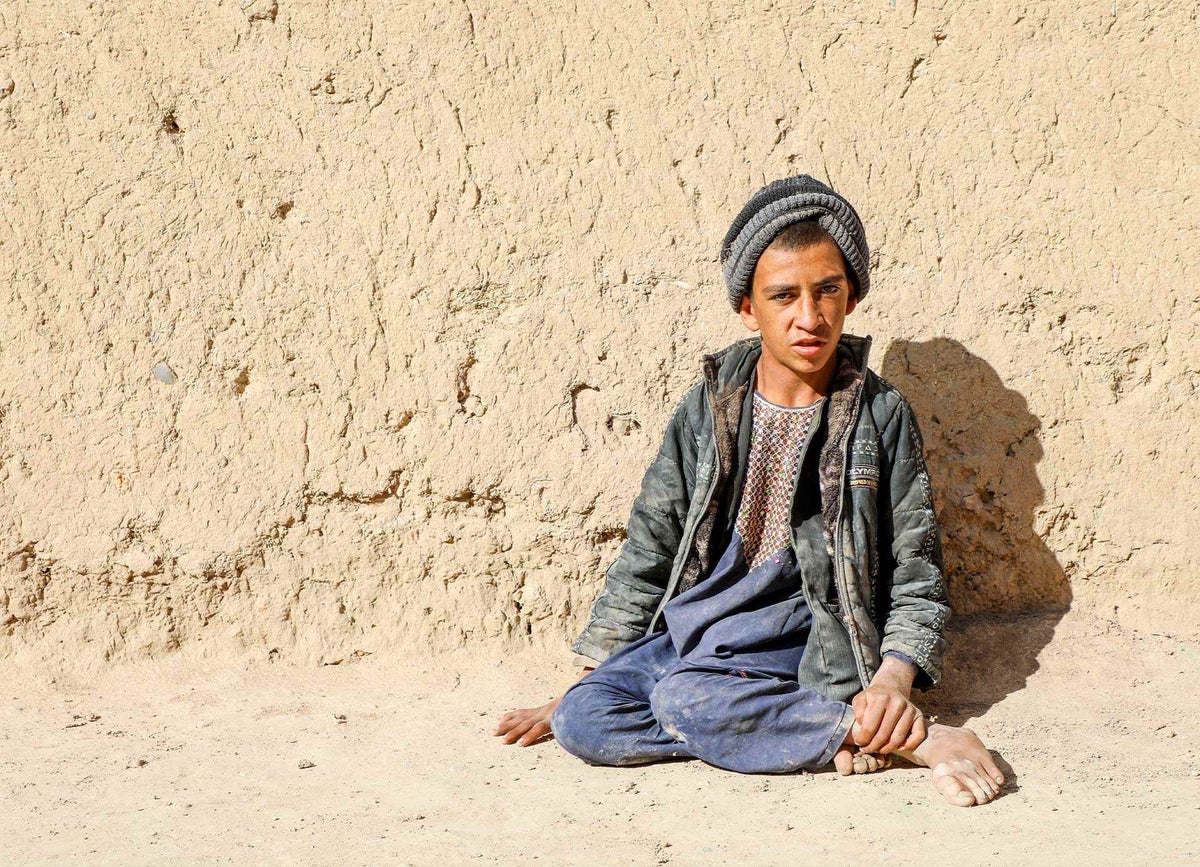
Polio is still endemic
Afghanistan is one of only two countries in the world where polio is still endemic. The other is neighbouring Pakistan. Last year in Afghanistan there were 56 cases of polio. In some provinces, routine vaccination remains low due to myths, misinformed beliefs and rumours.
For Afghanistan to eradicate polio for good, all children must be vaccinated. But almost half – 46 per cent – of children aged 12 to 23 months have not received their basic vaccines.
UNICEF is a key partner in the Global Polio Eradication Initiative – a global public health initiative launched more than three decades ago. UNICEF works with partners to find innovative ways to reach every child with vaccines, and to build trust in vaccination.
To end polio for good, UNICEF is working to vaccinate all children under the age of five. Teams travel door-to-door, no matter how far, to make sure every child is protected from disease.
Every year in Afghanistan, UNICEF helps to reach nearly 1.2 million children under one year with life-saving vaccines and 6 million pregnant women with vaccines that prevent diseases.
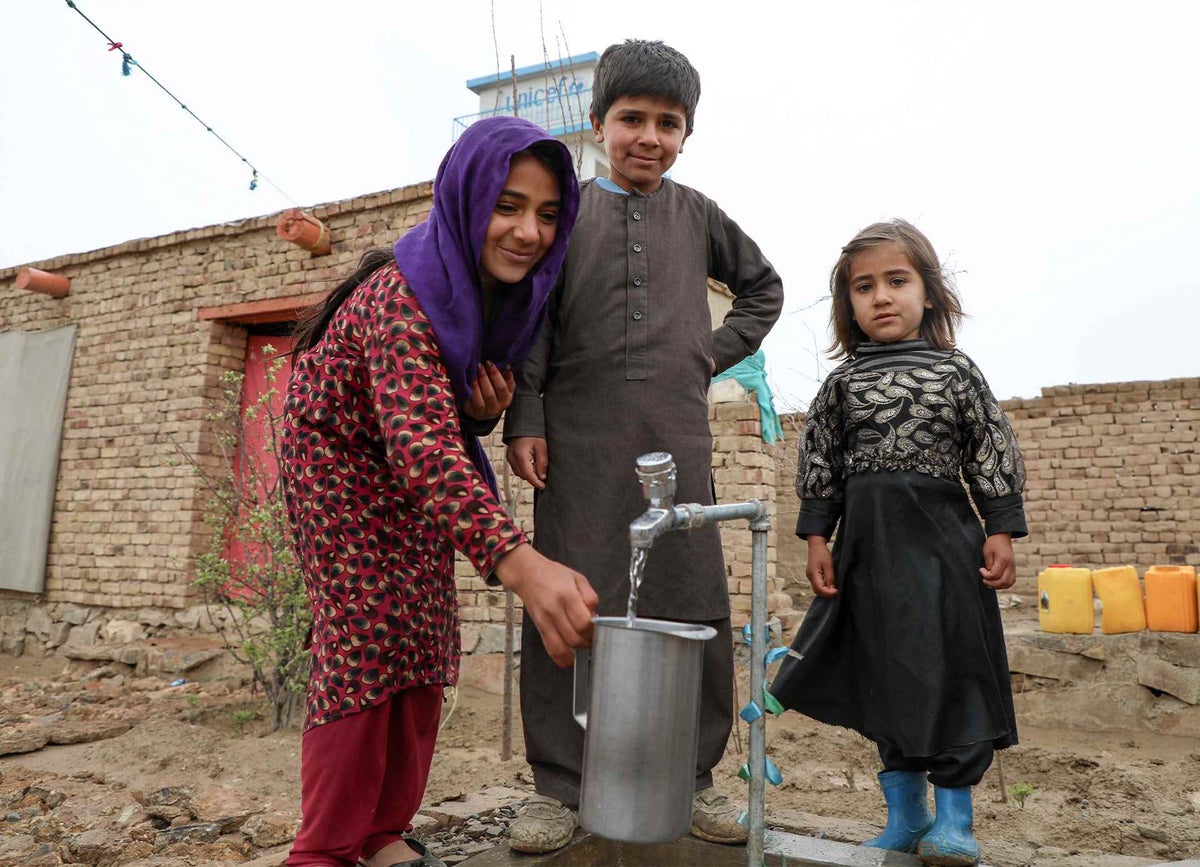
Water is in short supply
Clean water, basic toilets and good hygiene practices are essential to the survival and development of children. Yet, many children in Afghanistan lack access to safe drinking water, often walking miles to collect water in heavy jerry cans.
Thirty-three per cent of people do not have access to basic drinking water, according to a report by the WHO and UNICEF.
UNICEF works to provide safe drinking water to impoverished and rural communities. In 2020, nearly 122,000 people gained access to safe water.
Abdul and his family fled to Kabul after conflict broke out in their hometown. His children used to carry water long distances from the neighbouring village.
“Now, it’s at our fingertips to fill a glass of water and drink it safely. I thank UNICEF and its partner who helped us to bring the water in our own house,” says Abdul.
Today, more than 67 per cent of Afghans have clean drinking water through improved drinking water sources that are protected from outside contamination – a marked progress from a decade ago when drinking water reached only 20 per cent of people.
Please help continue this life-saving work so we can reach every child with safe water.
How is UNICEF helping children in Afghanistan?
Thanks to support from generous people like you, our teams are on the ground:
- providing medical care to displaced families.
- delivering emergency water and sanitation facilities.
- vaccinating babies against polio and other preventable diseases.
- treating children who are severely acutely malnourished.
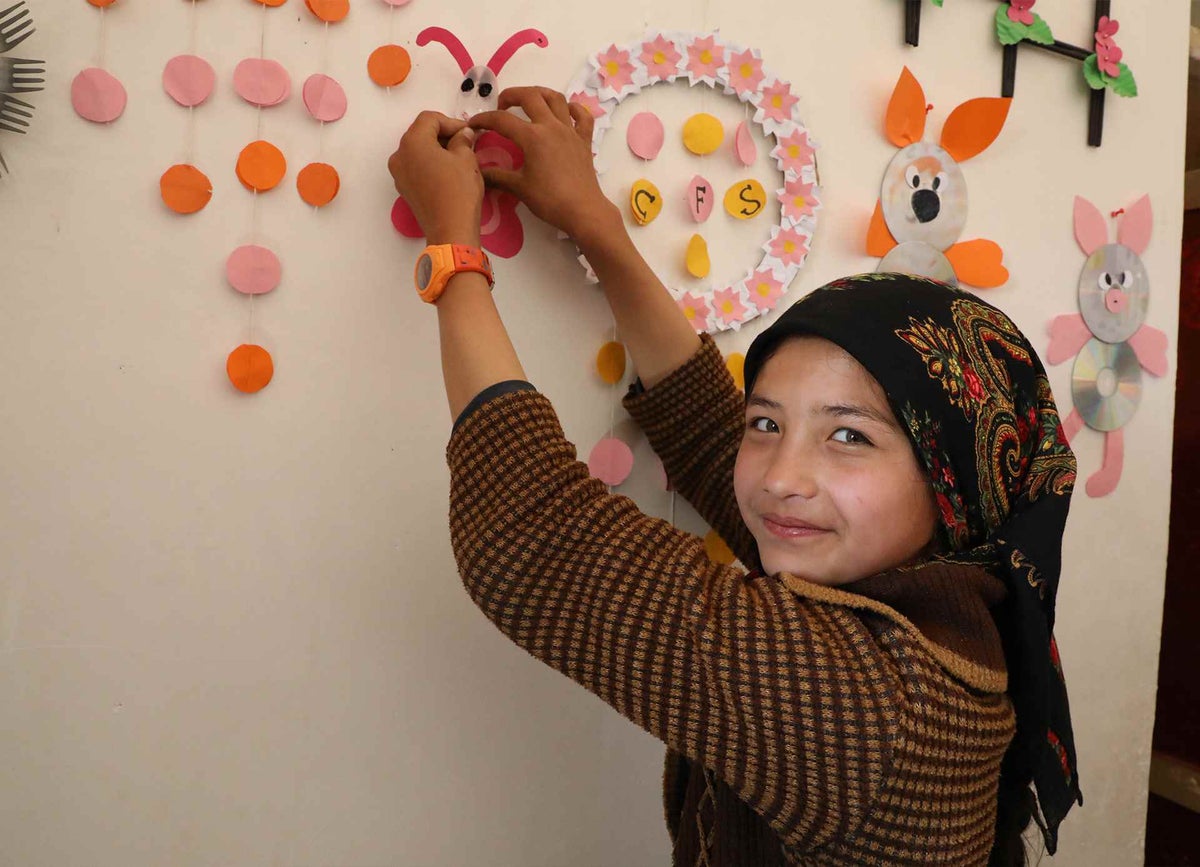
Decades of war
Most children in Afghanistan have never known peace. Conflict and fighting have been part of daily life for over two decades.
In the first half of 2021, more than 552 children have been killed and 1,400 have been injured, meaning families have lost loved ones and many children have been left traumatised.
Habiba and her family fled conflict in northern Afghanistan, finding safety at a camp for internally displaced people.
“One day, the fighting was so bad, my father told us to run to the basement. We all hid there until the fighting was over,” says Habiba.
“I held the hem of my mother’s dress and asked her to put her hands on my ears so I couldn’t hear the big explosions.”
Half of Afghanistan’s 30 million people are under 18. Children face trauma due to ongoing conflict, displacement and harmful social norms and practices. This can severely impact their psychosocial well-being and development.
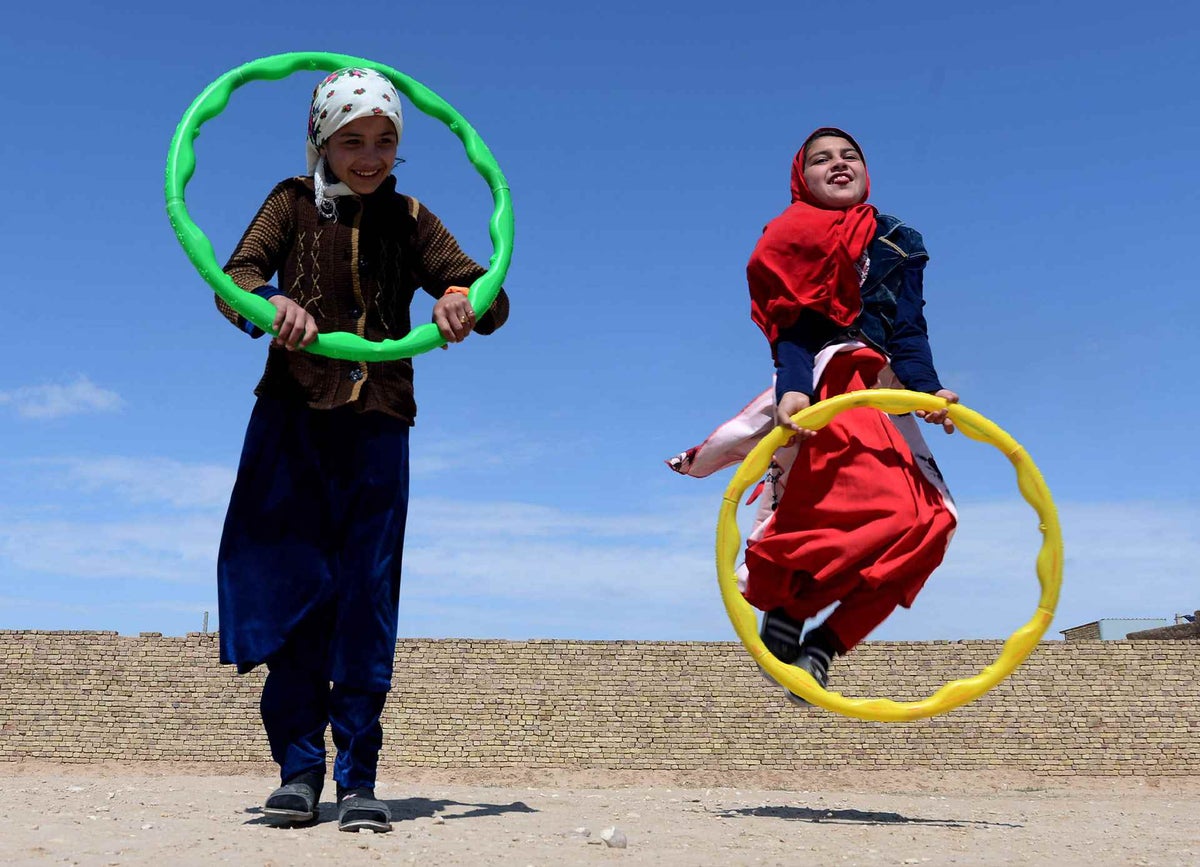
During humanitarian emergencies, UNICEF help to set up child-friendly spaces for children. These safe havens provide a space where they can play, learn, and socialise. They help to restore a sense of childhood after a crisis or during a protracted emergency.
Although Habiba was away from the sound of explosions and conflict, she was reluctant to leave the house. Maryam, a teacher at the Child Friendly Space (CFS), encouraged her family to bring her to the centre.
Since attending the CFS, Habiba has healed from the terrible experiences she endured. In addition to speaking her native Turkmen language, she has now learned to speak Dari, and has made new friends.
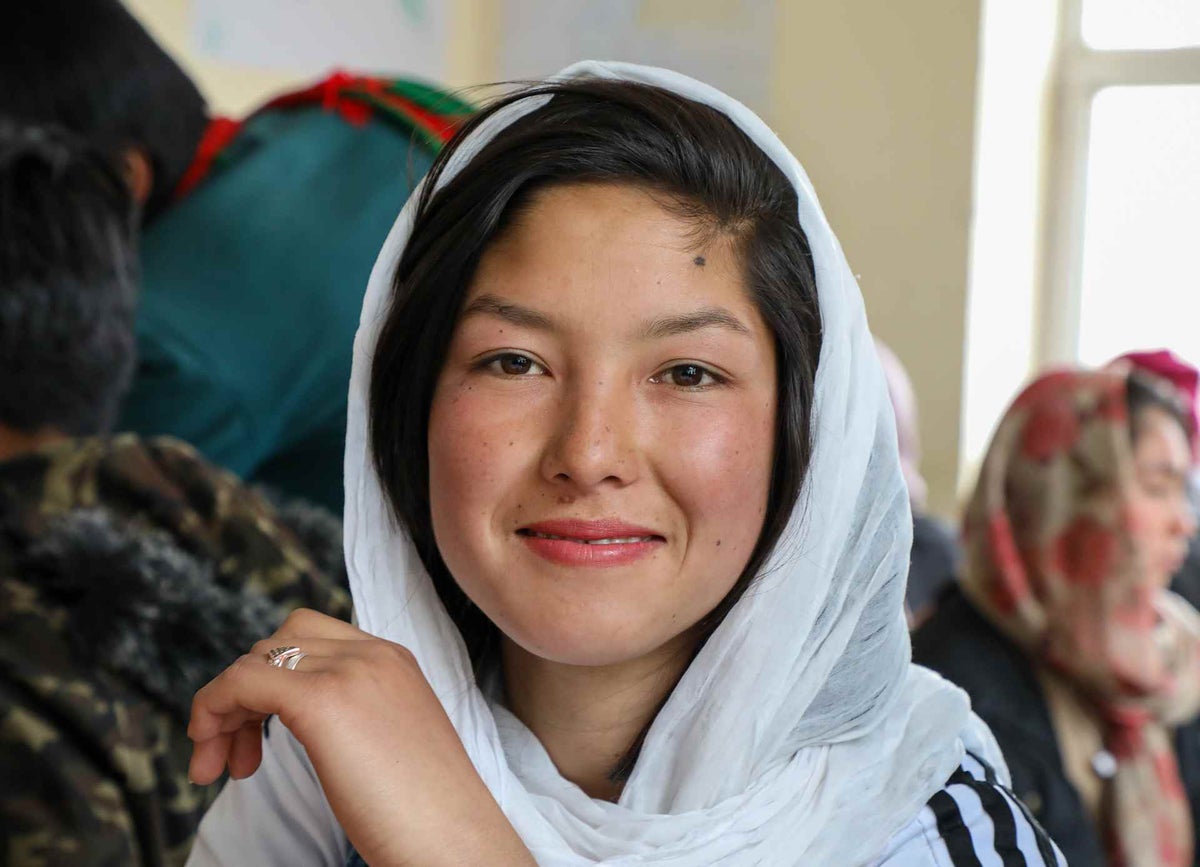
Girls missing out on school
Afghanistan’s education system has been devastated by decades of conflict.
For many children, completing primary school remains a distant dream – especially in rural areas. 3.7 million children are out of school, and more than half are girls.
Rubaba, 18, had to drop out of school at Grade 7. As she grew older, her parents needed her help to take the cattle to the mountains in search of food and water – even though she loved to study.
Traditional norms and practices keep girls and young women from going to school. One in three girls were married before their 18th birthday.
Today, Rubaba is part of a program supported by UNICEF which helps girls between 12 and 20 who have missed school. She will study Grade 7 and 8 combined in one year.
“The good thing is that many parents now understand the importance of education, and we have the program to prepare the girls for enrolment in regular school,” says Rubaba.
For decades, UNICEF has worked with local partners to increase the number of children in school. We help find alternative pathways to learning and increase education opportunities for the hardest-to-reach children.
UNICEF has always and will always advocate for all girls in Afghanistan to attend primary and secondary school, and go to university if they choose.
This year, our teams aim to support the opening of community-based education schools and provide supplies to keep displaced children learning.
Children in Afghanistan
You can help continue this life-saving work on the ground in Afghanistan.
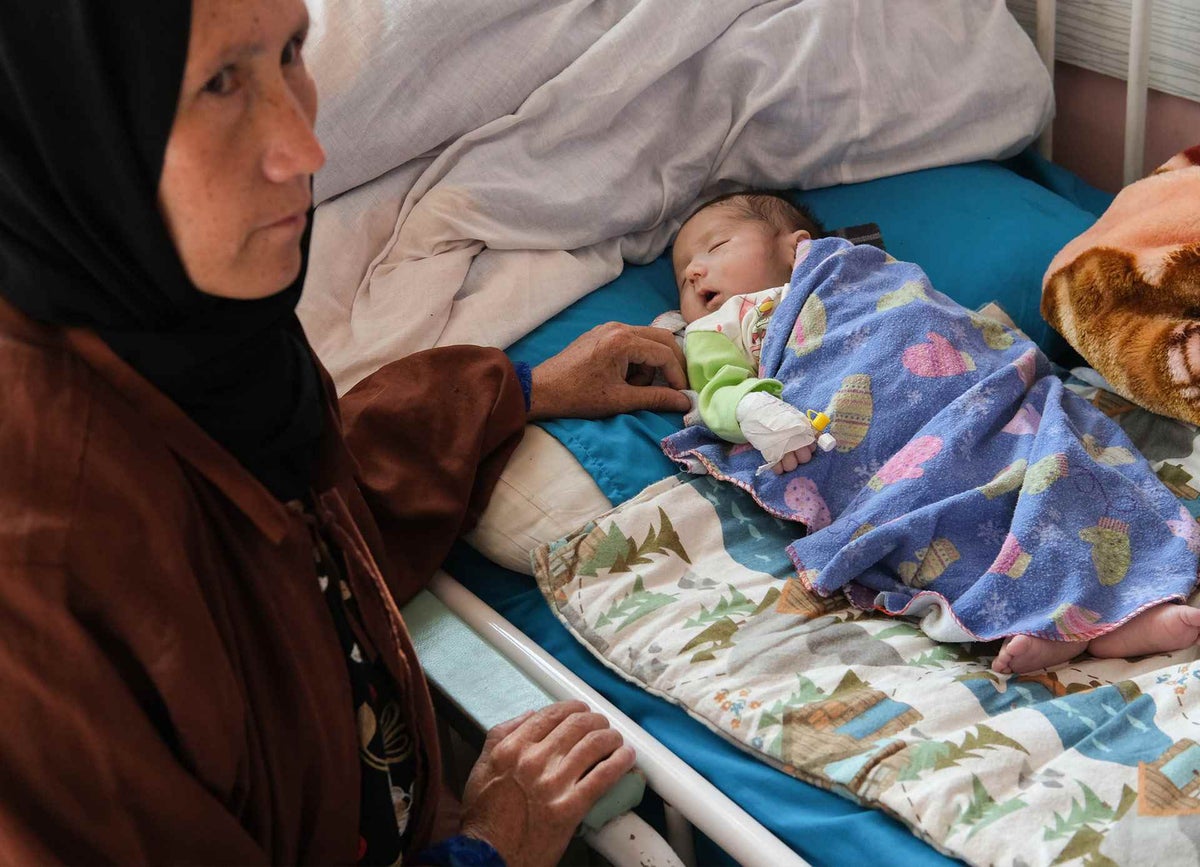
Children are malnourished
Afghanistan has one of the world’s highest rates of stunting in children under the age of five: 35 per cent.
Stunting is a sign of chronic undernutrition during the most critical periods of growth. Stunted children are more likely to contract diseases, less likely to get basic health care or perform well in school.
One in 18 Afghan children fail to reach their first birthday and two in five children do not reach full mental or physical development. Without urgent action, 1 million children under the age of five will be severely malnourished by end of 2021.
UNICEF is the lead United Nations agency addressing newborn needs, and our teams have spent decades working to expand services in existing health facilities and reach mothers and children in remote villages.
In 2020, more than 50,000 pregnant women and 79,000 children who live more than two hours away from a health facility received essential health care through mobile health teams.
Children can count on UNICEF
In August 2021, the world watched as Afghan communities experienced a huge and fast change in the country's leadership.
Months of conflict and fighting forced half a million people to flee their homes. More than half of these were children.
"Despite all the unanswered questions that lie ahead, one thing is certain," says UNICEF Afghanistan Representative Hervé Ludovic De Lys.
"UNICEF is here to stay and deliver for every child and every woman in Afghanistan. UNICEF has been here for 65 years and we’re not leaving.”
In the first six months of 2021 alone, UNICEF has reached 1.7 million people with humanitarian assistance. Now more than ever, we are there for the children of Afghanistan.
Despite the challenges, UNICEF will stay and deliver for every child. Please support our work to protect vulnerable children.
Related articles
Stay up-to-date on UNICEF's work in Australia and around the world



